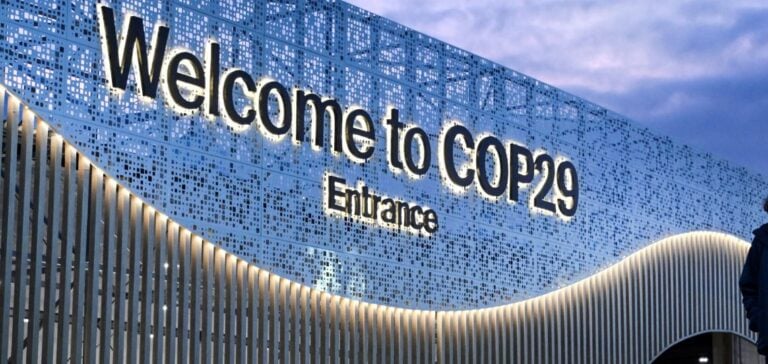Climate financing, the central issue of COP29 in Baku, underscores growing tensions between developed and developing countries. With two days remaining in the negotiations, France’s Minister of Ecological Transition, Agnès Pannier-Runacher, announced that the final figure will only be disclosed at the very end of discussions, reflecting the deep divides over financial and diplomatic commitments.
Developing countries, requesting $1.3 trillion annually, criticize the lack of clarity from wealthy nations, particularly the European Union. These demands reflect increasing needs to fund ecological transitions and adapt to climate change impacts. However, a French source clarified that such a target cannot be met solely through public finances from the Global North. France advocates for diversifying funding sources, including multilateral development banks, the private sector, and innovative mechanisms such as international taxes.
A fragile balance between climate ambitions and economic constraints
The financing issue exposes a structural imbalance in international discussions. With the $100 billion annual target only recently reached in 2022, developed countries struggle to meet far more ambitious expectations. This delay fuels tensions in a context of global economic fragility.
Meanwhile, discussions on broadening the contributor base are making slow progress. Signs of openness from China offer some hope, but negotiations remain stuck on operational details. The French minister emphasized that these talks aim for a compromise, but consensus remains distant.
Energy diplomacy and the phase-out of fossil fuels
Beyond financing, the negotiations address strategic issues such as reducing greenhouse gas emissions and the progressive phase-out of fossil fuels. These discussions are part of a broader dynamic of energy diplomacy, where each stakeholder defends national priorities while seeking to uphold the integrity of international agreements.
However, progress on these points remains limited. “We’re not there yet,” admitted the minister, while reaffirming France’s commitment to pushing for more ambitious targets. She also highlighted the importance of cross-cutting issues like human rights and gender equality within these discussions.
A draft agreement expected
A draft agreement, expected in the coming hours, could provide a basis for final negotiations. However, this document is unlikely to be definitive and risks reflecting persistent divisions. It will need to address developing countries’ expectations while incorporating the constraints of developed economies.
In this context, COP29 serves as a true test of global energy diplomacy. The final days of negotiations will be critical to define a common framework that advances climate objectives while respecting economic and political realities.






















